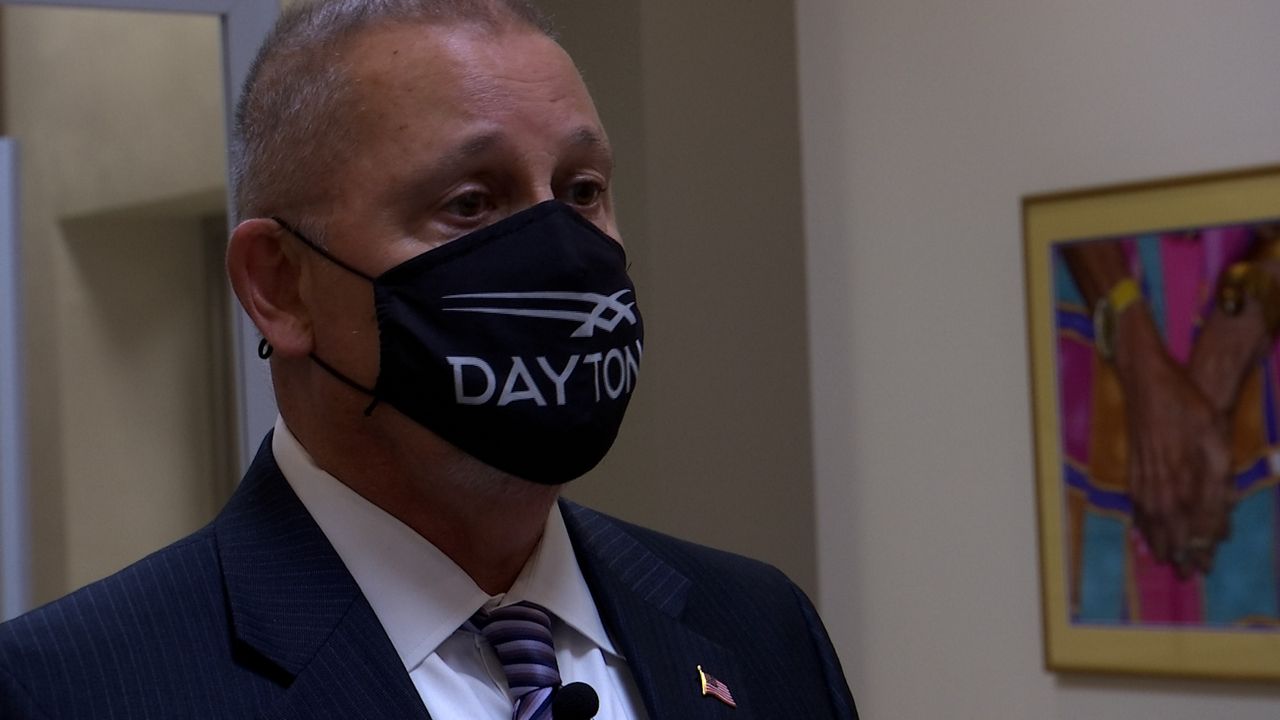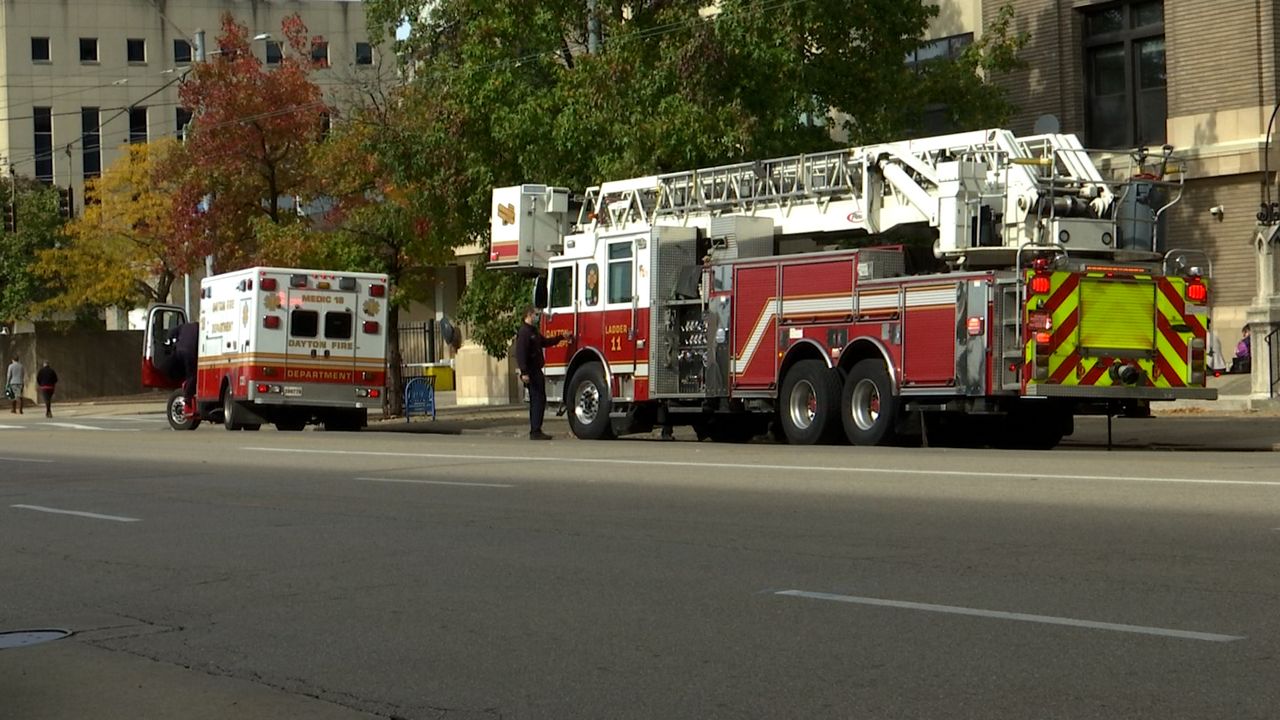DAYTON, Ohio — November marks the start of a new policy for Dayton employees. They can either show proof of vaccination, submit to weekly COVID-19 testing or take unpaid time off.
The city first announced the policy in the summer, working to put it in place in early fall despite pushback from a number of city employees, particularly union leaders from the Fraternal Order of Police and the International Association of Firefighters.

On day one of the policy’s rollout, FOP and IAFF leadership spent more than six hours at City Hall negotiating with city leaders in the hopes of coming up with a way to keep their members safe and employed. Despite the long talks, negotiations hit a stalemate and Dayton’s policy remains in effect for every city worker.
Zachary Williams, a board member with FOP Lodge 44 in Dayton said he had already heard some of his fellow officers refused to comply and were sent home without pay.
“Our officers are willing and ready to come to work and for the last 18 months they have been,” he said.
According to the city, employees have a week to get tested, and if they take it at work, the city will manage the costs associated with the weekly task. If they refuse and go home, the employees will have to stay home unpaid until they can provide proof of a negative test. For that test, the city said they have to pay out of pocket.
William considers it an unfair burden to those who choose not to get the vaccine.
“Our members are being sent home without pay,” he said. “They don’t have access to any of their own time so they’re burning their own cash.”
Ken Couch, the human resources director for the city, disagrees. He believes it’s a compromise that can keep city workplaces safe without taking away anyone’s personal choice.

“You get an employee choice but then there’s consequences to the choice,” he said. “If you choose not to get the vaccine then you’re going to get the test or you’re not going to be in our workplace.”
Couch said the city of Dayton considers workplace safety their top priority, especially after the city has seen two workers die from COVID-19 and several others become sick. In his view, weekly testing isn’t asking much.
“It’s a test,” he said. “There’s no exemption to testing. It’s a cotton swab.”
Meanwhile, Kraig Robinson, the IAFF Local 136 president, believes the city’s mandate is a massive overstep. He said a change this drastic to the terms and conditions of employment for his firefighters, by Ohio law, should have come through the city negotiating with the IAFF through collective bargaining.
“That is our right,” he said.
The IAFF as well as the FOP have threatened to sue the city for this perceived breach of contract, but no litigation has started yet.
Couch believes the city is on firm legal ground, claiming that in a public health emergency, the city has a right to take necessary steps to ensure a safe workplace.
“We’re gonna defend that both in arbitration and at the state employment relations board because we believe this is a managerial right,” he said. “You should not be allowed to come to work and endanger your safety, other employees' safety, and your citizen’s safety and that’s what this is about.”
Union leaders would not explain what they discussed with the city nor were they willing to say why they had yet to reach an agreement, but Robinson seemed optimistic negotiations were headed in the right direction.
“We had some positive back and forth we’re hopeful we can come to an agreement and keep in mind this is all about member safety for the FOP and the IAFF,” he said.
Robinson said sending staff home without pay indefinitely is a public safety concern. He believes it puts the city at risk as well as other firefighters or officers who would have to pick up their slack.
While the city saw no disruptions to public services on Monday, Robinson said things could worsen through the week.

“We all have contingency plans on how to provide safety services,” Couch said.
Meanwhile, first responders face safety concerns from the virus as well. According to the FOP, coronavirus is currently the leading cause of death for officers nationwide and the International Association of Fire Chiefs reports hundreds of EMTs and firefighters have succumbed to the virus as well.
“That is a sensitive topic and we’re still trying to get that ironed out,” Robinson said.
Both groups have said their decision on this issue comes down to safety, but until city and union leaders can agree on what that means, negotiations will have to continue.
There are no additional negotiation meetings scheduled between the city and the two unions, but all parties have said they are willing to meet again to seek a compromise.
Dayton is not the only municipality in Ohio to make such a mandate, though it’s the largest city so far. The Village of Newburgh Heights instituted an even stricter policy in the summer. Of the 100 village employees, the mayor said he had to discipline two.



